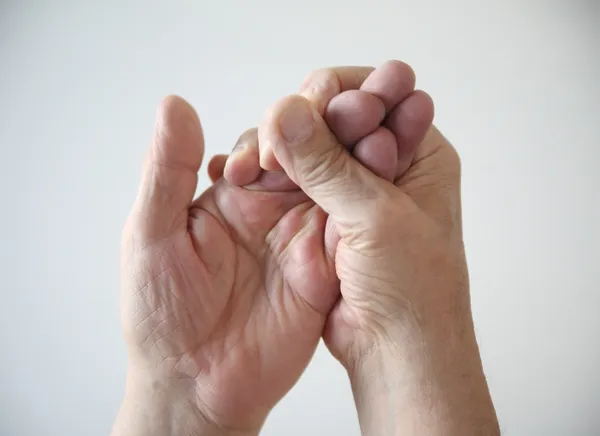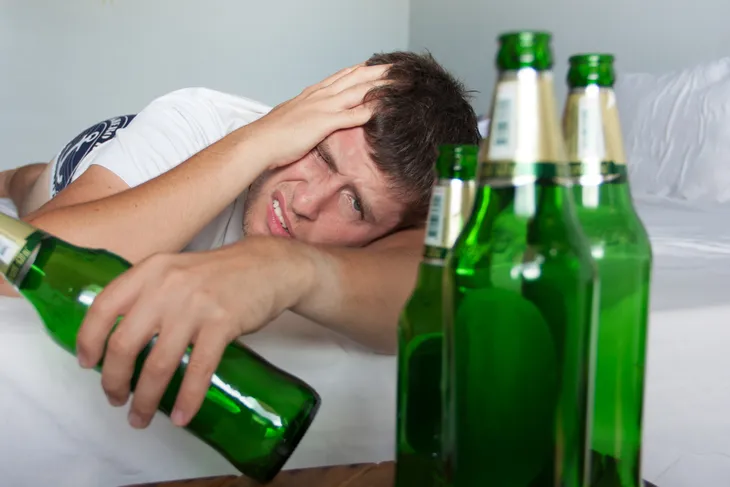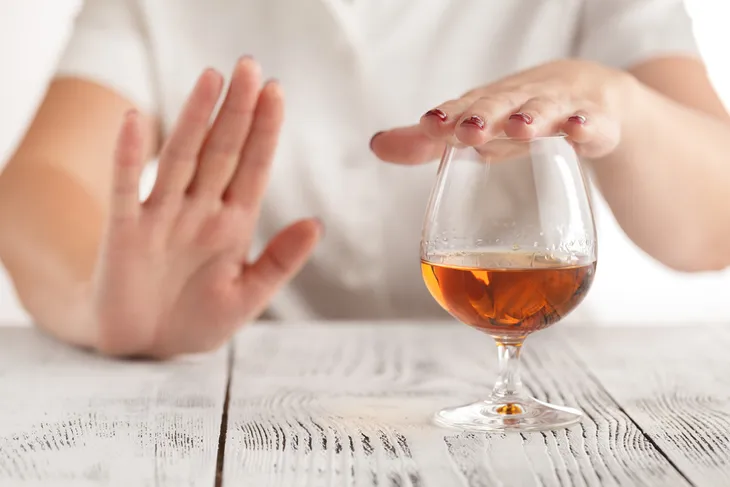Alcohol abuse is a very serious disease that many people struggle to deal with every day. A good majority of people enjoy a glass of wine or a beer after a long day of work, but the difficulty lies in knowing when your drinking has become a problem. Casual drinking can quickly turn into a serious issue for many people with addiction problems.
If you’re asking yourself whether you have (or someone you know has) an alcohol problem, take a look at the signs and symptoms below. If these symptoms sound familiar, you may want to consider seeking professional help. Alcohol abuse can have serious long-term effects on you and the people around you. The sooner you get help, the better it will be for you and your loved ones.
1. Temporary Memory Loss and Blackouts
If you consume so much alcohol that you continually black out or can’t remember pieces of your night, it could indicate a drinking problem, especially if it happens on a regular basis. The inability to recall things that happen when you’re drinking is a result of grossly excessive blood-alcohol levels, which actually inhibit your brain from functioning normally. While this is still problematic if it only happens on occasion, it can be the sign of serious long-term problems if it occurs on an ongoing basis.
If you drink to the point of memory loss or blacking out, you should seriously consider seeking treatment. Alcoholism can cause permanent and irreversible brain damage, which affects both your cognitive performance and your memory. Drinking isn’t worth risking brain damage, and alcohol-triggered blackouts are no laughing matter, especially if you become prone to forgetting a large portion of your evening.
2. Drinking to Cheer Up
If you rely on alcohol to boost your mood, this signifies an unhealthy dependence. A glass of champagne to toast a special occasion or a beer while you’re watching a sporting event is completely normal and acceptable, but using alcohol as a means to make you feel better when you’re not happy is a common warning sign of substance abuse.
It’s also important to keep in mind that any mood-enhancing effect alcohol may have is only temporary. It has actually been shown to increase your risk of both depression and anxiety, so turning to it as a solution for your woes will do much more harm than good. Also, alcohol intake doesn’t necessarily lead to an elevated mood; it can make you socially withdrawn, brooding, or prone to unusual or violent behavior. Simply put, you shouldn’t use it as a solution to other problems, for any reason.
3. You’ve Tried to Quit Drinking But Can’t
Many of us have tried to quit, or at least cut back, on drinking at some point. If you’ve tried reducing the amount that you drink multiple times, or if you’ve tried to quit altogether and can’t seem to kick the habit, it may be an indication that you have a drinking problem. Once you become addicted, it’s difficult to control the amount of alcohol you take in every day. If you’ve tried to stop but simply can’t find it in you to quit having one or more drinks per day, it may be time for you to seek assistance from a professional.
Over time, alcohol creates a physical dependence. In other words, your body comes to rely on it and you will suffer potentially serious health problems if you go into withdrawal. Under extreme circumstances, this withdrawal can be life-threatening. Prevention is the best treatment for such eventualities.
4. You Drink to be “Normal” or “Fit In”
Do you feel like you need to drink alcohol to fit in, particularly when you’re meeting new people for the first time? If you don’t feel comfortable in social settings unless you have a drink in your hand, it can be an early warning sign of a potential problem. Worse, it could lead to an increase in your drinking over time; after all, nobody can avoid social situations for very long.
You shouldn’t need alcohol to feel a sense of normalcy. If you do, it can indicate that you are relying on alcohol as a mask for avoiding deeper issues. Therapy and treatment will go a long way towards helping you identify those issues and deal with them in healthier ways. You’ll need to make some lifestyle changes, but ultimately, you will reach a better, happier place after seeking help.
5. Flushed Skin
One of the physical signs of chronic alcoholism is flushed skin and broken capillaries on the face. This symptom can present in a variety of ways, ranging from rosy cheeks to visible blood vessels that spread across your face like a spider web. These symptoms occur because of the constant presence of alcohol in your bloodstream, which can damage the skin as well as smaller blood vessels that carry blood to localized regions of your body.
If you’ve noticed a change in your appearance, or if others have pointed out a change in your appearance, you may want to consider either cutting back on your alcohol intake or eliminating it altogether. Once your body starts to undergo physical changes as the result of routine drinking, it’s a warning sign that things are reaching a problematic level. If you’re struggling to give up drinking or cut back, seek help.
6. Trembling Hands
Trembling hands are one of the most common symptoms of alcohol abuse. If you’re experiencing shakiness in your hands after a day or night of drinking, it’s because the nerves in your body have been damaged due to excess alcohol intake. This will normally occur in people who regularly consume excessive amounts of alcohol, and it’s a serious symptom that warrants professional attention and possibly rehabilitative therapy.
You may also experience trembling hands if you drink a lot, but suddenly stop drinking. This is a symptom of a condition known as “delirium tremens,” colloquially called “rum fits.” In short, if you have a physical dependence on alcohol, your body will shake if you don’t drink it. You’re most likely to notice this shaking in your hands, and it will inhibit your ability to carry out tasks requiring fine motor skills. For example, you may struggle to use a wrench or write something down with a pen.
7. Problems with Family Members as a Result of Drinking
If you’re having recurrent arguments with friends and family members in regards to your drinking habits, this may be a clear indication that your habits are more serious than you think. If you can’t give up alcohol when friends and family members express their concern, you may be addicted. Once you’re addicted, it’s very difficult to break the habit. The sooner you address your issues, the sooner you can heal your body and the relationships you’ve broken because of drinking.
Experts stress that problems in your close personal relationships is a clear indication that your drinking has reached problematic levels. It’s normal to resist urges to get help, but if they persist as you keep drinking, you should expect that things are only going to get worse. Seek help before that happens; friends, family and relationships are among the best things in life, and you don’t want to risk losing yours to a drinking problem.
8. Being Secretive or Lying
If you feel the need to drink in secret or lie to family and friends about how much alcohol you consume, it’s safe to say there’s something wrong. You wouldn’t be lying about it if you thought it was normal, and if you’re doing this, it’s probably because you know deep down that you have a problem but aren’t yet willing to seek help. If you can’t talk truthfully about your alcohol issues, you should seek professional assistance to help you face your substance abuse problem.
Denial can be a very powerful thing, and it is a common element of the addiction syndrome. You might tell yourself that you’re hiding your drinking because you don’t want family and friends to worry about something that’s really no big deal, but if it weren’t a big deal, you wouldn’t have to hide it in the first place. Be honest with yourself. Your long-term health could depend on it.
9. Symptoms of Withdrawal
Sure, many of us experience anxiety, insomnia, and nausea after a night of drinking—these symptoms are normal parts of a hangover. However, if you experience these symptoms for days after you’ve tried to stop drinking, it’s could be because you are physically addicted to alcohol. It is your body’s way of telling you that you are going through alcohol withdrawal. Many people in this phase of recovery also experience lingering depression and loss of interest in activities they once enjoyed.
The good news is that these symptoms will subside once you’ve eliminated alcohol from your system for an extended period of time, and your body has readjusted to a healthier state. The flip side of the coin is that most people with physical dependencies on alcohol require professional help to reach this state. It is very difficult to kick a problematic drinking habit without experienced guidance and an extensive support system.
10. Drinking in the Morning
If you’ve started drinking first thing in the morning, you almost certainly have a problem with alcohol. There’s no reason to be drinking in the morning, unless your body is so addicted that you feel as though you can’t start your day without a drink. Chances are you have to drive somewhere that day as well, which means that you’re willing to get behind the wheel after consuming alcohol. If you’re drinking in the morning, you need to seek help as soon as possible to address your issues before your problem ends up putting your life and the lives of others in danger.
However, be wary of falling into a cycle of excusing your behavior because you’re able to confine your drinking to other, more appropriate times of day. If you are drinking excessively day in and day out, or several times per week, your behavior is reaching problematic levels and you should get help before things spin out of control.
11. Drink to Relieve Stress
Drinking shouldn’t be used as a coping mechanism and for a lot of people it is. This is why alcohol is often referred to as an antidepressant. When consumed responsibly, alcohol is meant to be a social activity for fun and enjoyment, it’s not something to turn to in order to help deal with difficult emotions.
HelpGuide.org writes, “many drinking problems start when people use alcohol to self-soothe and relieve stress. Getting drunk after every stressful day, for example, or reaching for a bottle every time you have an argument with your spouse or boss.” Be mindful about what the underlying cause might be whenever you or someone you know feels the urge to pour themselves a drink after a hard long day. A better way to cope with stress is to exercise or hang out with friends.
12. It’s Crossed Your Mind That There Might be a Problem
Ever heard the saying “where there is smoke, there’s usually fire?” That could be translated to this. Basically, if it’s ever crossed your mind that you might have a problem with drinking, or if someone close to you has suggested it, then it probably means there’s something wrong.
13. Unable to Stick to Drinking Limits
According to Mayo Clinic, one of the main symptoms of an alcohol use disorder is being unable to put limits on the amount of alcohol consumed. Someone who doesn’t have a drinking problem should be able to attend a social event or gathering with the intention of having just one drink. People who are struggling with alcohol abuse or alcoholism might set these limits for themselves, but they won’t be able to stick to them, according to HelpGuide.org.
14. You Have a High Tolerance for Alcohol
Someone who drinks often and a lot will eventually inevitably develop a high tolerance for it. Some people refer to this as “hold their alcohol” and might think it’s some kind of compliment or something to be proud of, but Very Well Mind points out that it actually has nothing to do with any kind of superior physical health. It merely means that person drinks more than the average person.
The source also walks us through how a tolerance is defined. It develops either because that person “a) need for increased amounts of alcohol to achieve intoxication or desired effect, or b) diminished effect with continued use of the same amount of alcohol.”
15. Your Social Life Revolves Around Drinking
As we previously mentioned, someone who is suffering from alcohol abuse is constantly thinking about drinking. So much so that their whole life begins to revolve around drinking. They will begin to accommodate that way of thinking through their environment and their social life will begin to revolve around drinking. “You have reduced or given up some of your social, work, or recreational activities because of your alcohol use. This is often described as drink-seeking behavior and includes decisions such as only going to social events that will include drinking, or only hanging out with others who drink,” writes Very Well Mind.
It will also affect a person’s priorities. Things that were once important to them like working out or hanging out with friends and family are no longer important because they do not cater to a drinking lifestyle. “You’re spending less time on activities that used to be important to you (hanging out with family and friends, going to the gym, pursuing your hobbies) because of your alcohol abuse,” writes HelpGuide.org.
16. You’re Experiencing Problems at Work
One of the biggest warning signs that a person has a problem with alcohol is when it begins to affect their responsibilities explains HelpGuide.org. For example, if someone is experiencing problems at work due to their drinking, it’s time to take a step back and reconsider what’s really valuable. This could include showing up to work late, missing work, not completely projects in a timely fashion, unable to get along with co-workers, showing up to work drunk. It isn’t limited to work obligations either. It could be any obligation or responsibility like school, home life, relationship with friends or kids.
17. Constantly Thinking About Drinking
Addiction is like a craving that doesn’t subside. It can be all encompassing, consuming, and basically override a person’s life. A lot of that is due to the fact that they can’t stop thinking about drinking. When they’re sober, they’re thinking about when they can have their next drink. When drinking, they’re chasing after that feeling of being drunk.
A good way to tell if you’re someone who’s suffering from alcohol abuse is by asking yourself, am I constantly thinking about drinking? HelpGuide.org says to consider this when trying to determine if there’s a problem: “You spend a lot of time drinking, thinking about it, or recovering from its effects. You have few if any interests or social involvements that don’t revolve around drinking.”




















